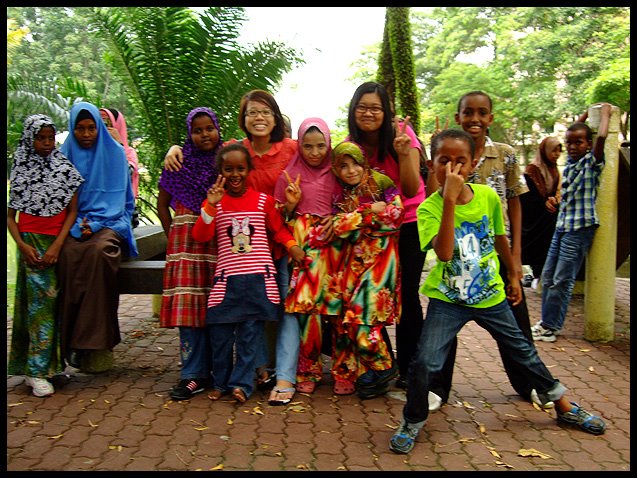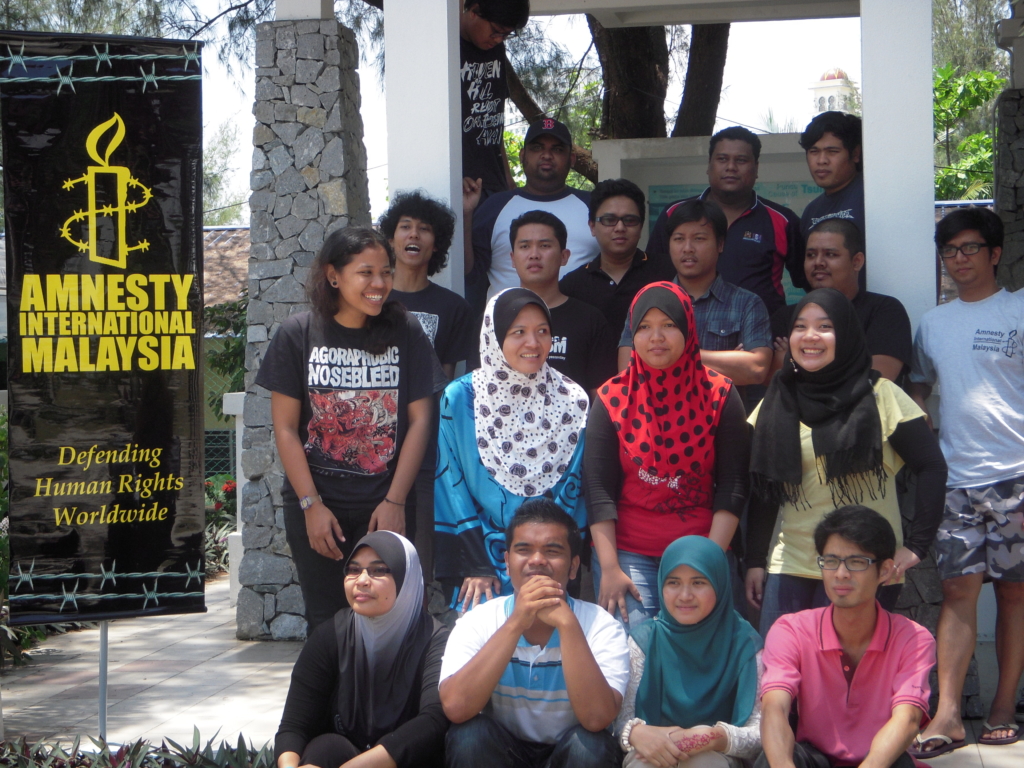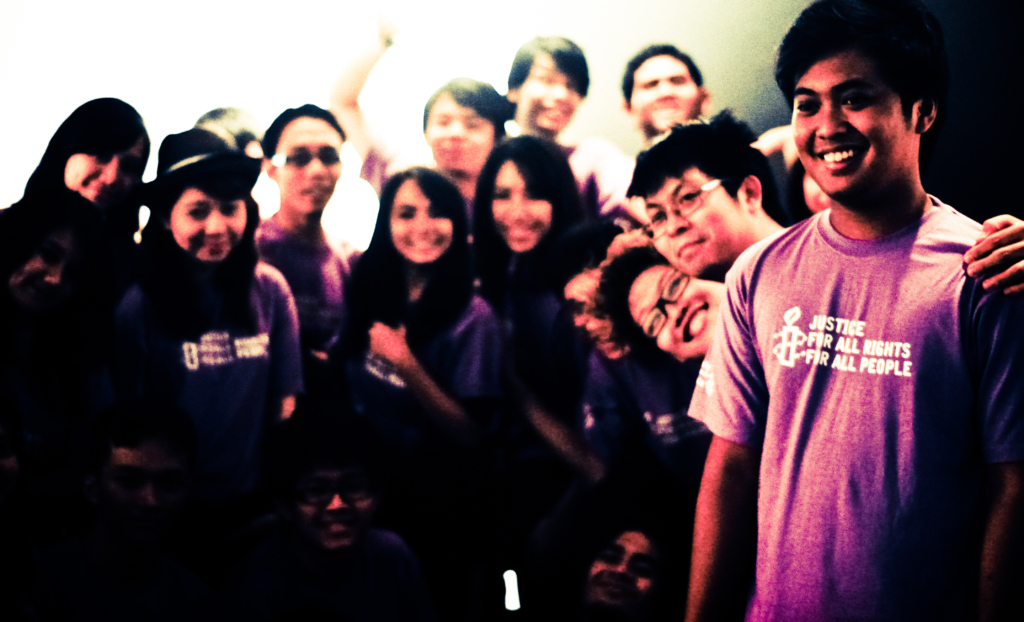Yohendra Nadarajan, Board member overseeing human rights education and HRE Coordinating Committee member for Asia Pacific, shares his experiences of using communications technologies to advance HRE with young people and grow membership in Malaysia.
EMILIE: Hi Yohendra, this is the Human Rights Education network news. We are going to ask you some questions about human rights education in Amnesty International Malaysia.
YOHENDRA: Hi everyone, my name is Yohendra Nadarajan. I was the HRE Coordinator from 2007 to 2009 at Amnesty International Malaysia and after that I’ve been part of the Board of AI Malaysia overlooking HRE, so HRE is something dear to me. I’ve been in HRE since 2007 until now; doing workshops, seminars for HRE in Malaysia.
EMILIE: So what’s interesting and exciting, special about HRE Malaysia this year?
YOHENDRA: Well, we have been working a lot with youths. Youths have been our main constituents. We target a lot of workshops and we invest in youth because we see youth as the future. They are the ones who will bring more members, with their friends, into human rights fields. It could be in various ways, but that’s where we plan to invest in youth in Malaysia.

EMILIE: I’ve heard a lot about how youth in Malaysia are very well connected and online. I was wondering, how do you use communications technologies for human rights education?
YOHENDRA: Amnesty Malaysia has been using new technologies, and when I say new technologies it means you could use Facebook, Twitter, blogs and anything online. This is our strength at AI Malaysia: how to use video cameras, digital cameras, how to use the internet to upload those things to make a real impact.
We used to work with the Asia Pacific Youth Network, APYN, which is a regional youth network coordinated by the office in Hong Kong. They regularly have skype workshops. Those are tools that we can use to reach out to youths, not necessarily in the physical sense of the classroom, but you know you can do it virtually online, have global petitions and things like that.
We have been using Facebook for quite some time and it’s been really good, like how we get our activists making theatre performances or upload any human rights abuses on Facebook because that’s where you get maximum coverage. People tend to upload something and it goes viral; it means it passes onto another person and onto another one and next thing you know there are a thousand, a hundred thousand, people looking at a certain video clip. That creates an awareness on a certain an issue. So that is one thing we are proud of.
Malaysia is from the global South and we have a pretty high internet penetration. If I’m not mistaken the government says that we have 80% internet penetration in Malaysia. Internet is accessed by youth and they are the ones pioneering it, not those elder generations. Kids nowadays as young as seven, eight years old, they have their own mobile phones and some of them are actually using smartphones. The government of Malaysia encourages people to use new technologies. There have rebates on internet for students, they subsidize smartphones. Those are things youth can use and that can become great tools to disseminate human rights actions or information.

EMILIE: Malaysia was part of the Rights Education Action Programme. How have you moved on since then, since 2009 in your HRE activities?
YOHENDRA: We had funding from the Rights Education Action Programme (REAP) by AI Norway for three years, from 2007 up to 2009. In 2010 we didn’t actually have a grant for HRE, so unfortunately we had to let go the position of HRE Coordinator but our membership and campaigns coordinators have stepped up, it’s an overlap of some of their wok; as well as volunteers and trainers who we have trained earlier as part of the REAP project, they have come back and contributed towards the growth of HRE in Malaysia.
Even without budget, of course certain things we package under certain campaigns or projects, for example in conjunction with the 50th anniversary of Amnesty International in 2011 we had a special Youth Ambassador project where we adopted 50 youths and we did an HRE program with three workshops with them. We tried to make it as interactive as possible for youths.
After the three workshops they went out on field trips organising HRE events themselves, organising concerts, plays and they reached out to over a thousand youths in Malaysia. I think that is the effect we want, investing in youth through HRE and then getting the numbers whereby over a thousand people attended all our events over four weekends.
We also collected about seven hundred members and that speaks a lot. Investing in fifty people and getting back seven hundred members and more than one thousand youth attending our activities and the youth ambassadors went to the different States to conduct all the activities. That’s how we progress. That’s why we say youth is the way to go.
EMILIE: That’s really interesting. Do you have a top priority for HRE in 2013? Is there a big activity this year?
YOHENDRA: At the moment we are facing some restructuring in AI Malaysia, so we are trying to carry on the work that we have. Ideally we should have a staff of five members in the office, but due to unforeseen circumstances we have only two at the moment. The Board members and other AI Malaysia members are chipping in to support the office. So we don’t have big plans this year until we get a new director in, but we are trying to sustain all our HRE workshops and to ensure that we don’t lose whatever momentum we have gained now. Just to ensure that we maintain everything so that we can plan for bigger things and apply for bigger grants.
I’d just like to share some of the news coverage that we had with the 50 Youth Ambassadors. This is a newspaper clipping. We had some media coverage over the 50 Youth Ambassadors. We came out in different newspapers, on the news, on the radio, so we managed to generate publicity through our HRE work with the 50 Youth Ambassadors. So we just want to sustain that at the moment and to maintain that the 50 youths that we invested our expertise in continue reaching out to other youth as well.
EMILIE: Thank you very much. It was really great to hear from you what’s going on in Malaysia.
Interview conducted by Emilie White, HRE Network & Communications Coordinator on 22 January 2013 at the International Secretariat in London, for the International HRE Network News.

Subscribe to the Human Rights Education blog series.
Header Picture: Youth in Malaysia learning new technologies, social media and video for Human Rights ©Amnesty International


